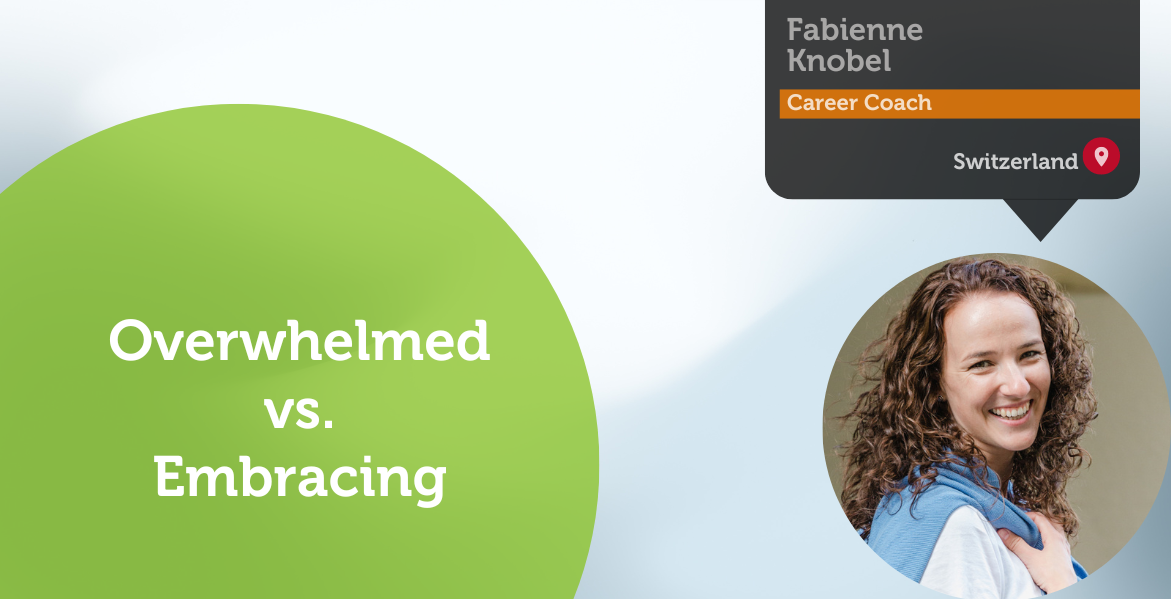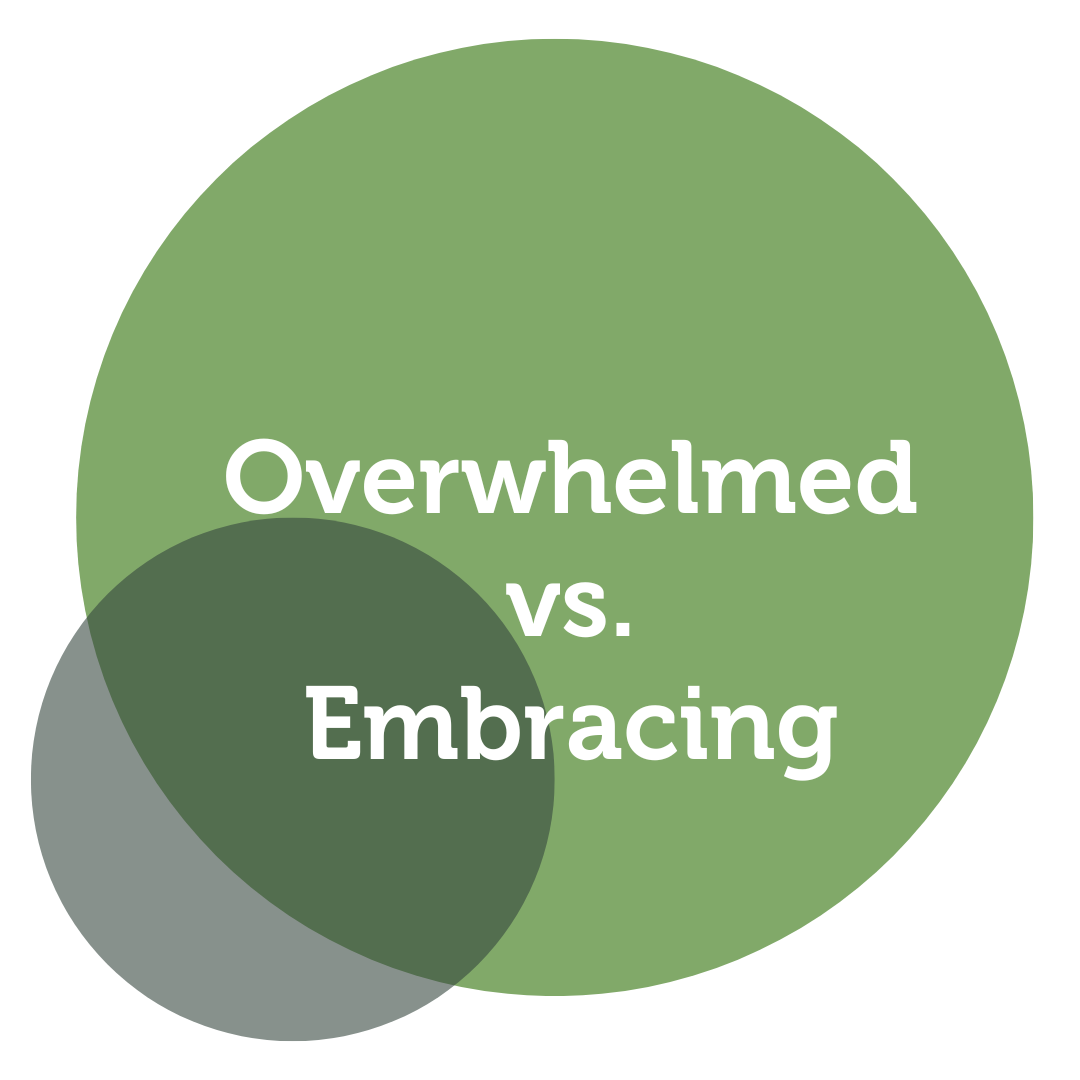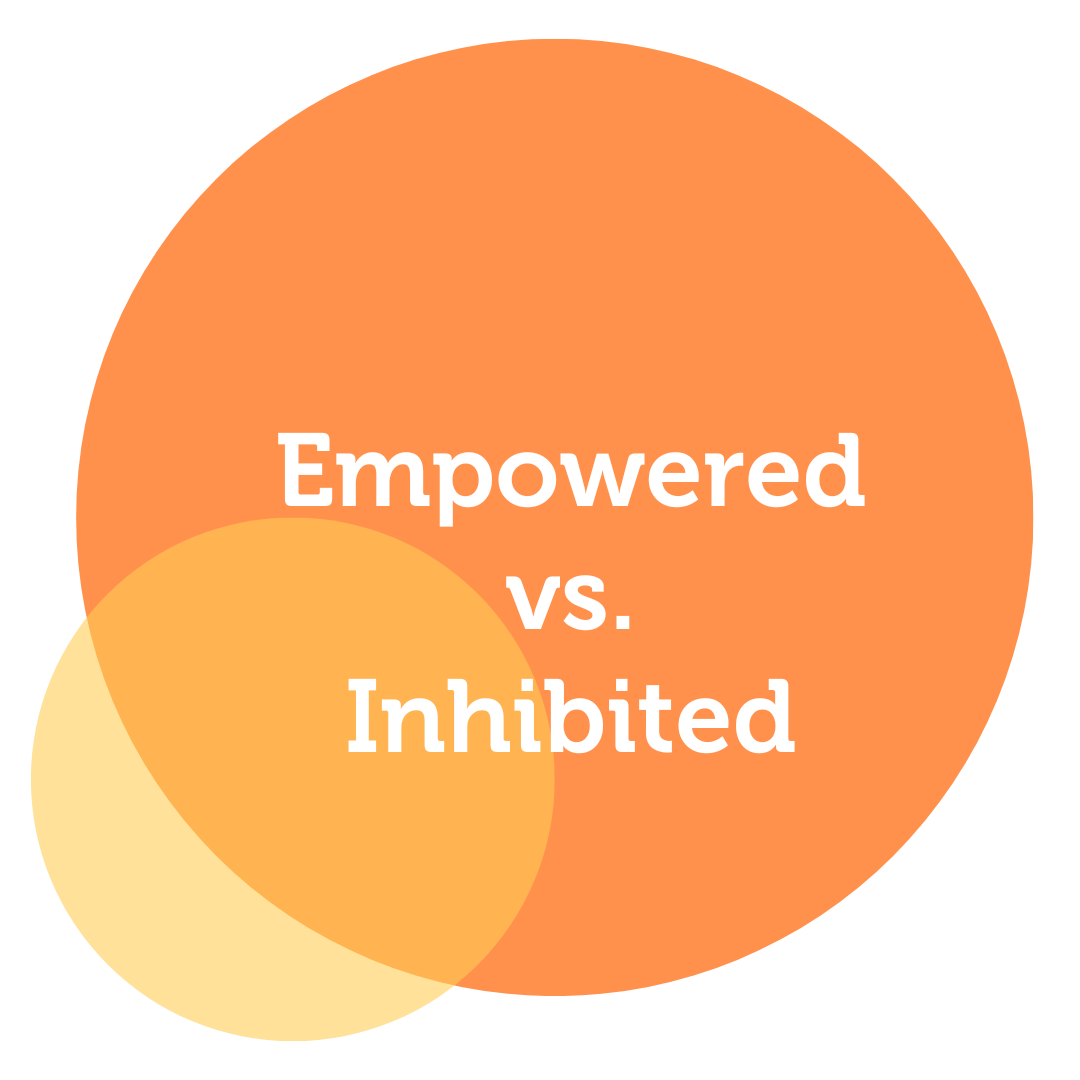A Coaching Power Tool By Fabienne Knobel, Career, Life, Family and Infertility Coach, SWITZERLAND

Two Perspectives: Overwhelmed vs. Embracing
 Two perspectives immediately captured my attention as I was reflecting on my future target group and my own circumstances I was in: the desire for children. The journey to conceive can present significant challenges when encountering obstacles along the way. The rollercoaster of emotions, the unpredictability of outcomes, and enduring societal expectations are among the numerous factors that can contribute to feelings of being overwhelmed. Personally, I realized that acknowledging the current circumstances and embracing a certain situation can serve as an initial step toward initiating a healing process and breaking free from overwhelming emotions. Through my experiences in peer coaching, I further observed the profound impact of this powerful tool in reframing clients’ perspectives on various aspects of life. Understanding the dynamics between the perspectives of “overwhelmed” and “embracing” entails an exploration of contrasting mindsets and approaches to challenges or situations, involving several steps to navigate. This power tool serves further as an initial step within my GENKI coaching model – “grasp the current”1.
Two perspectives immediately captured my attention as I was reflecting on my future target group and my own circumstances I was in: the desire for children. The journey to conceive can present significant challenges when encountering obstacles along the way. The rollercoaster of emotions, the unpredictability of outcomes, and enduring societal expectations are among the numerous factors that can contribute to feelings of being overwhelmed. Personally, I realized that acknowledging the current circumstances and embracing a certain situation can serve as an initial step toward initiating a healing process and breaking free from overwhelming emotions. Through my experiences in peer coaching, I further observed the profound impact of this powerful tool in reframing clients’ perspectives on various aspects of life. Understanding the dynamics between the perspectives of “overwhelmed” and “embracing” entails an exploration of contrasting mindsets and approaches to challenges or situations, involving several steps to navigate. This power tool serves further as an initial step within my GENKI coaching model – “grasp the current”1.
I haven’t directly coached this specific target group yet, though, I talked to many that have been affected and were open to sharing their story with me. Their courage in sharing, as well as the coaching I received myself during this phase, has been instrumental in helping me define my power tool and seek feedback on it.
Overwhelmed vs. Embracing Perspective
Overwhelming Perspective
Feeling overwhelmed is part of our life, it’s a feeling we all know from different situations in life – mostly connected to negative feelings or situations. However, being overwhelmed can also derive from being flooded by positive emotions, it can even flash us – I’m thinking of falling in love, experiencing deep feelings of appreciation, longing for something and it finally happens like holding your child for the first time in your arms. On the opposite, there can be obvious external triggers like work, unfamiliar situations, or, like in my target group, the longing for parenthood or finding a new purpose after an unfulfilled wish for children, which leads to situations, where everything feels just too much or uncertain on how to cope with a specific situation.
The desire to become a parent runs deep within the human experience, and the inability to realize this dream can lead to a profound feeling of being overwhelmed. The emotional chaos coming from the longing for a child is often intense and encompasses a variety of factors and emotions
- A vision of family life: Many couples I talked to had a fixed idea about the definition of how family life should be. Facing challenges to fulfilling this desire is deeply emotional. Struggles with conceiving or letting go of a dream often trigger intense sadness, disappointment, and a search for meaning beyond parenthood. This unfulfilled desire can even lead to an identity crisis, compounded by the loss of control and emotional strain.
- Societal norms and cultural expectations: The fear of being perceived as inadequate or facing judgment from others is immense and can intensify the pressure felt by those individuals. This pressure can exacerbate the stress they are already facing and create a sense of isolation.
- Physical and financial burden: Fertility treatments, medical procedures, and their associated hormonal fluctuations and side effects can be invasive, adding to the overall stress and strain on the body. The costs associated with it further compound the emotional distress.
- Relationships: The inability to become a parent is a test for every relationship. Every couple I talked to, mentioned an increased tension, disagreements, and strain in their partnership over time, further amplifying the distress.
To navigate these overwhelming emotions, seeking support from various sources becomes crucial. Every couple I talked to, myself included, sought advice from therapists or physicians. However, those experts look at you as a medical case, black and white, and often, it’s simply a business for most of them. Personal aspects, wishes, and individual approaches are often left beside, which drives you further down. You stop following your intuition and become more and more determined by others. The feeling of being overwhelmed is complete.
Embracing Perspective
Those who adopt an embracing mindset acknowledge their longing for parenthood or inability to fulfill their desire but approach it with a sense of hope, resilience, and proactive determination. They channel their energy into positive actions, such as exploring various options available to them, enhancing their emotional well-being, and nurturing their relationships. When people overcome their prejudices and are open to new ideas and approaches, new methods and modern concepts can emerge, including the acceptance of practices such as adoption. Embracing individuals also find ways to create meaning and fulfillment in their lives outside of parenthood, focusing on personal growth, self-care, and finding joy in different aspects of life. The most significant feeling that arises from this perspective is the assurance that it’s not their fault, that they haven’t failed in any way, and that they are perfect just the way they are. This sentiment has also been reaffirmed through my conversations.
Characteristics of the Embracing Perspective:
- Positive Outlook: There’s a focus on possibilities, opportunities, and potential solutions rather than solely on problems.
- Adaptability and Resilience: Embracing individuals demonstrates adaptability, finding ways to navigate challenges and bounce back from setbacks.
- Learning and Growth: They view challenges as learning experiences, and opportunities to expand their skills, knowledge, and perspectives.
Shifting from Overwhelmed to Embracing:
I strongly believe the shift from being overwhelmed to one of embracing a certain situation is a crucial first step toward growth. Especially for the discussed target group, where overwhelm can be a constant companion. But as mentioned earlier overwhelm can happen everywhere. During peer coaching, I realized how effective this power tool can be way beyond the mentioned target group. Because of its importance, this power tool also reflects the first step of my GENKI Coaching Model2. It helps to embrace the current towards change, to get freed of underlying beliefs, and to nurture positive change. It will introduce new perspectives and help to instill self-esteem for foundational resilience and emotional strength to cope with overwhelm.
How to apply the power tool in coaching:
- Awareness and Acknowledgment: Start by helping clients recognize their overwhelmed state. I use a lot the “normalizing” coaching tool to meet the client where they are and that they are not feeling alone in those moments – it can help to create a moment. Further, encourages self-reflection to understand the root causes of overwhelm.
- Mindset Shift: Assist clients in reframing their perceptions. Encourage a shift in mindset by focusing on what they can control rather than what they cannot. This usually already helps the client to become calmer. Identifying limiting beliefs and replacing them with empowering thoughts. This step is very important, though, it can take more time with the mentioned target group as the wounds run very deep sometimes.
- Prioritization and Planning: Breaking down the big picture into smaller pieces helps to reduce the enormity of the task or situation and with it, the feeling of being overwhelmed. Achievable steps further help to create moments of success for the client.
- Building Resilience: Help clients develop resilience by reframing setbacks as learning experiences. Encourage them to celebrate small successes and learn from challenges rather than being deterred by them.
- Mindfulness and Stress Management: Techniques like mindfulness, meditation, or breathing exercises are crucial to managing stress, reducing triggers, and finding inner peace. Encourage self-care practices to recharge and maintain mental clarity.
Overwhelmed vs. Embracing Mindset
Guiding clients through the shift from an overwhelmed mindset to one of embracing challenges is fundamental in promoting their growth, success, and overall well-being. Using this power tool in peer coaching I’ve learned, that it is essential, to go with the client’s flow. For some, it is literally easy to create such a shift and for others, it takes longer. Especially when I talked to adults with an unfulfilled wish for children, it took them a long to deal with these overwhelming feelings, as the emotional wounds were deep. Also, techniques like mindfulness work and stress management were key for them to create a certain resilience and build a positive mental state. This transformation is pivotal for their journey toward realizing their full potential and achieving personal and professional fulfillment.







